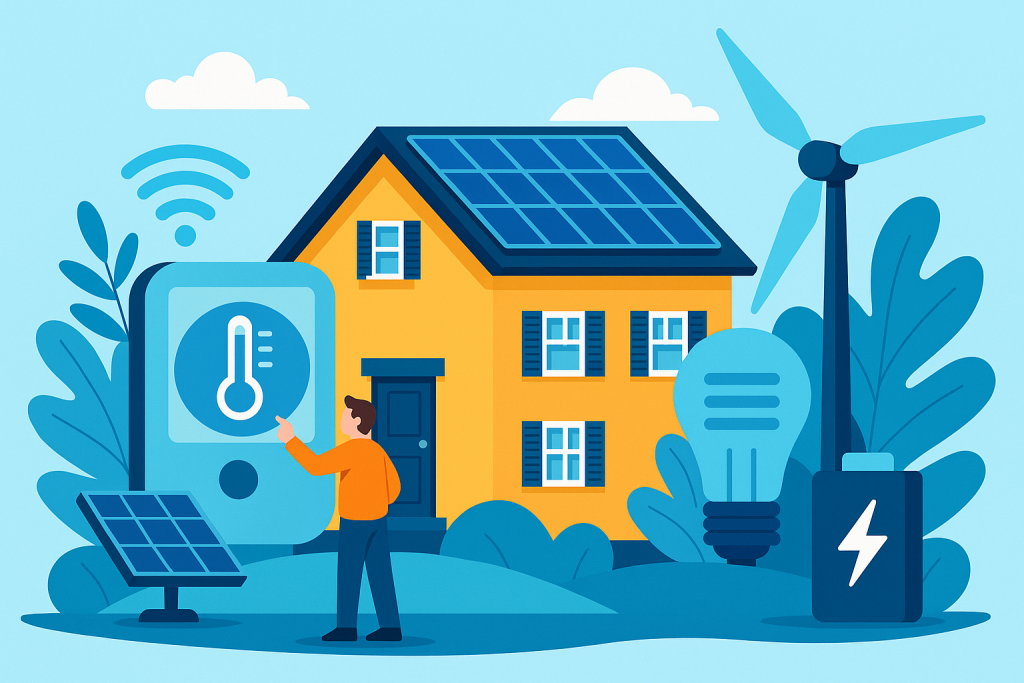Enhancing your home’s energy efficiency is more achievable than ever, thanks to advancements in technology and increased awareness of sustainable living. By adopting smart solutions and taking advantage of available incentives, homeowners can significantly reduce energy consumption and costs.

1. Embrace Smart Home Technologies
Integrating smart technologies into your home allows for better energy management and automation. Smart thermostats, for instance, learn your schedule and adjust heating and cooling accordingly, optimizing energy use. Smart lighting systems can automatically turn off lights in unoccupied rooms, further conserving energy.
2. Upgrade to Energy-Efficient Appliances
Replacing outdated appliances with energy-efficient models can lead to substantial energy savings. Look for appliances with the ENERGY STAR label, which indicates compliance with energy efficiency guidelines set by the U.S. Environmental Protection Agency. These appliances use less energy and water, reducing utility bills.Fixr+5hawesandco.co.uk+5Wikipedia+5
3. Improve Home Insulation
Proper insulation is crucial for maintaining indoor temperatures and reducing the workload on heating and cooling systems. Insulating attics, walls, and floors prevents heat loss in winter and keeps your home cooler in summer, leading to energy savings.
4. Seal Air Leaks
Air leaks around windows, doors, and other openings can lead to significant energy loss. Sealing these leaks with weatherstripping or caulk prevents drafts, maintaining a comfortable indoor environment and reducing energy consumption.
5. Install Energy-Efficient Windows
Energy-efficient windows minimize heat transfer, keeping your home warmer in winter and cooler in summer. Features like double glazing, low-emissivity coatings, and gas fills enhance insulation properties, contributing to overall energy efficiency.
6. Utilize Renewable Energy Sources
Incorporating renewable energy sources, such as solar panels, can significantly reduce reliance on non-renewable energy and lower utility bills. Solar energy systems have become more affordable and efficient, making them a viable option for many homeowners.
7. Take Advantage of Government Incentives
Various government programs offer incentives for energy-efficient home improvements. Tax credits, rebates, and grants can offset the initial costs of upgrades, making energy efficiency more accessible. For example, the U.S. federal government provides tax credits for certain energy-efficient installations, encouraging homeowners to invest in sustainable solutions.Fixr
References:
- U.S. Department of Energy. (2025). Energy Saver Guide: Tips on Saving Money and Energy at Home. Retrieved from https://www.energy.gov/energysaver/energy-saver
- ENERGY STAR. (2025). ENERGY STAR Products. Retrieved from https://www.energystar.gov/products
- Internal Revenue Service. (2025). Energy Incentives for Individuals: Residential Property. Retrieved from https://www.irs.gov/credits-deductions/individuals/energy-incentives-for-individuals









